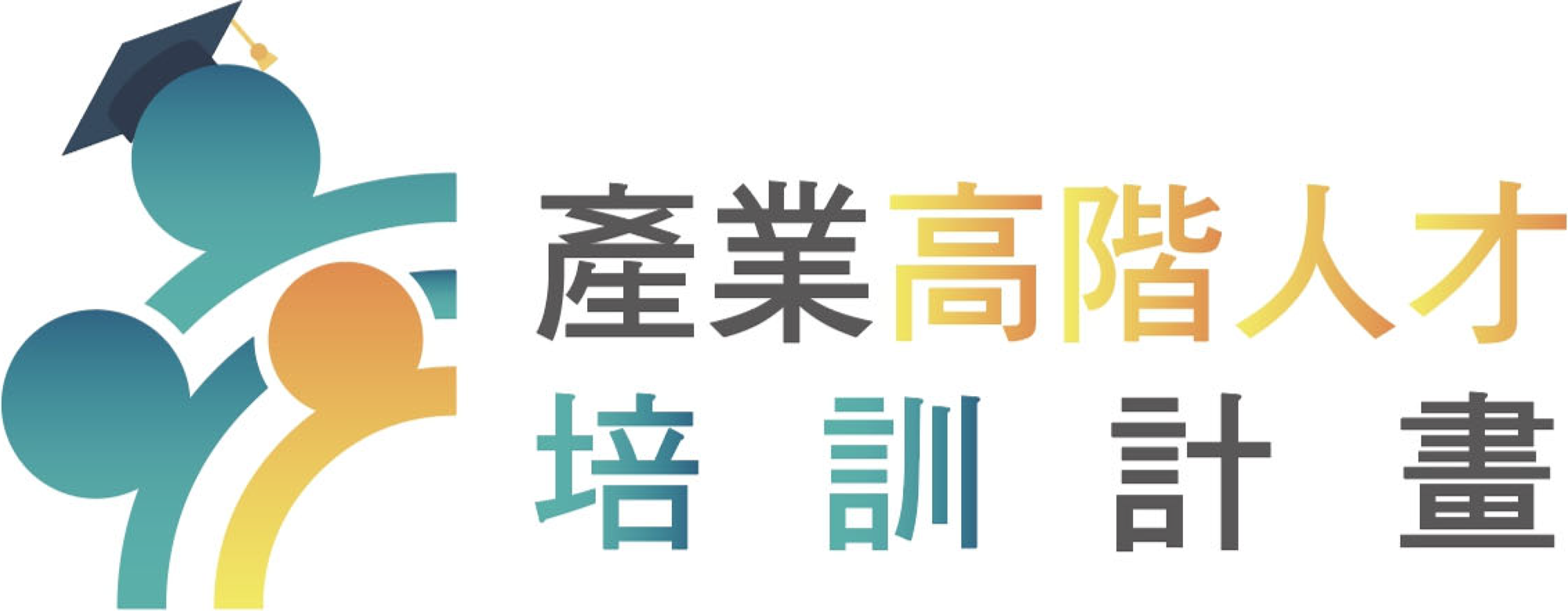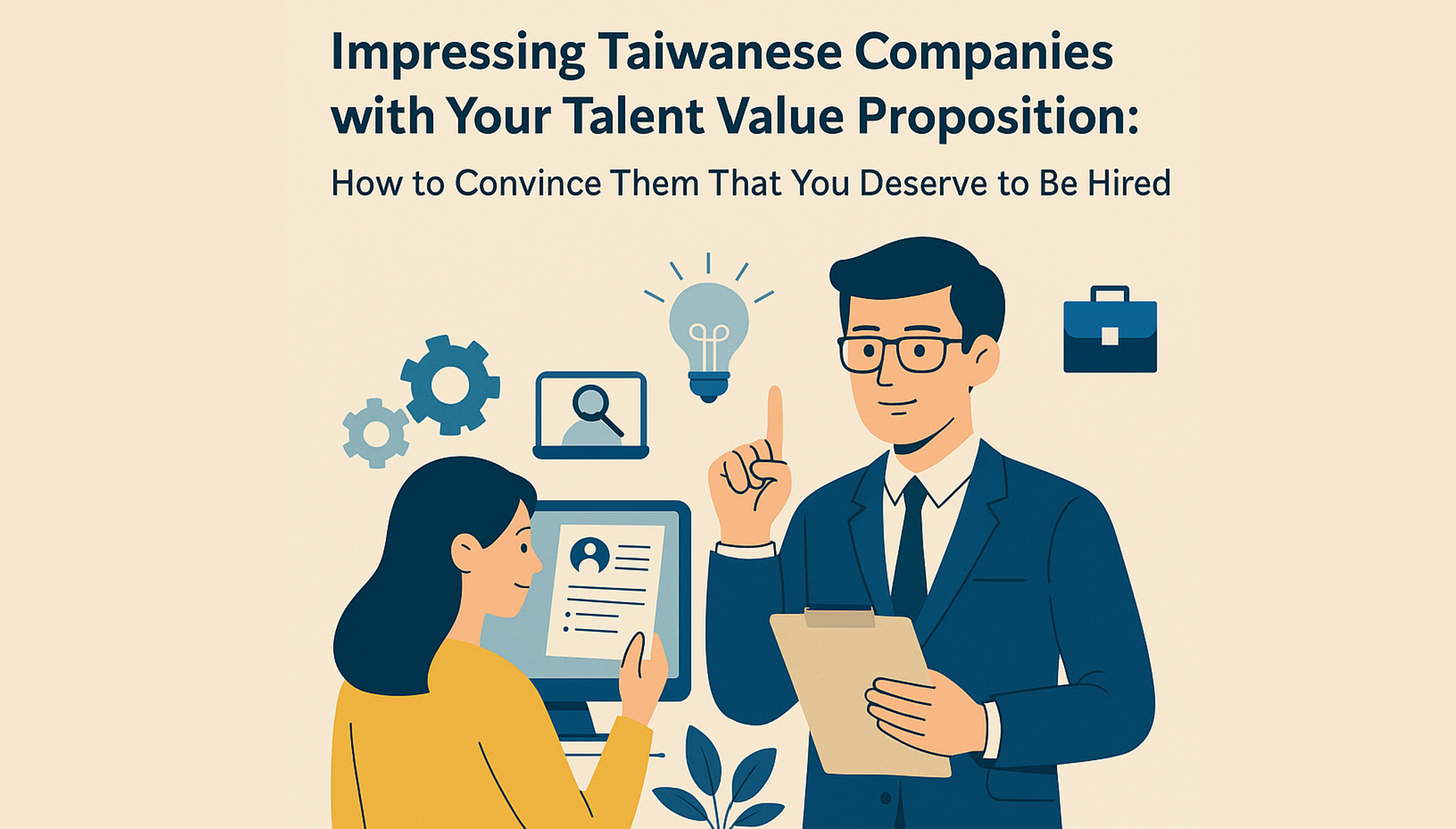網站標題
Content
Impressing Taiwanese companies with their talent value proposition: How to convince them that you deserve to be hired
For foreign masters and doctoral students who hope to develop in Taiwan, having academic qualifications and skills is just the starting point. What’s more important is whether you can clearly demonstrate your own strengths and meet the company’s expectations, so that you can be understood, trusted, and hired.
This is not just a job-hunting skill, but also a career strategy: let the company know what you can participate in and what you can do well, and further think about "is this person suitable for our team?"
What do Taiwanese companies care about?
First, whether you can adapt to the pace of the workplace smoothly. Companies generally value stability and the ability to engage in practical activities. If you have internship, project, research or work experience, please clearly describe the tools you are familiar with, the tasks you have handled or the ways of collaboration.
Second, whether you can communicate smoothly and integrate into the team. Most workplaces are still dominated by Chinese, and having basic Chinese expression skills will help in daily collaboration. However, for internationally oriented teams, cross-cultural collaboration is as important as English proficiency, and bilingual skills will be a clear advantage.
Third, whether one has the ability to solve problems and learning potential. What companies value is not just "what you have learned", but "how you can face challenges and find solutions". This ability is not only present in work experience, but can also be demonstrated through academic research, cross-border learning, participation in competitions or teamwork.
How to express your value?
1. Describe your academic and professional background
Regardless of whether you have work experience or not, you should start with your "core training".
For example:
“I completed my master’s degree at university, with a research topic on battery material simulation, and I have data analysis and Python modeling skills.”
“I worked as an intern engineer in a foreign company, participating in IoT system testing and responsible for API integration and writing Chinese and English documents.”
2. Corresponding to the needs or task situations of the enterprise
Further specify the types of work, technical tasks, or cross-departmental communication situations you can be involved in.
For example:
“I can support AI module optimization and assist with technical documentation and presentations with overseas customers.”
“I can participate in cross-departmental system integration and help improve product data flow and back-end operations.”
3. Combine into a clear value statement
Connect the aforementioned abilities and applications into specific sentences for easy use in interviews, resumes or self-introductions.
For example:
“With my material simulation training and cross-border collaboration experience, I can support the R&D team in performing technical analysis and coordinating communication with overseas partners.”
“I have a master’s degree in mechanical engineering and practical experience. I am familiar with sensor and PLC integration and can participate in smart manufacturing project development and technology verification.”
Communicate consistently in your resume and interview
When writing your resume, start by stating what tasks you can perform and what skills you possess, rather than just listing your education and experience.
An autobiography should use specific experiences to explain "how you did it", "why you did it", and "what the results were".
During the interview, prepare a one-minute self-introduction in advance and put forward your ideas on how you can join, participate, and coordinate based on the job requirements.
Conclusion
Taiwan is a diverse and pragmatic workplace. As long as you can clearly state your strengths and positioning, and demonstrate the workplace value brought by academic training, language skills or international experience, it will be easier for companies to understand "what you can do" rather than "who you are."
The clearer your personal preparation is, the smoother the cooperation will be. When employers and workplaces are willing to provide friendly systems and support, international talents will be able to develop more steadily and with peace of mind in Taiwan.
打動臺灣企業的人才價值主張:如何說服他們錄用你?
對希望在台灣發展的外籍碩博士生而言,擁有學歷和專業技能只是起點。更重要的是,你是否能清楚展現自身優勢,對應企業的期待,讓自己被理解、被信任,進而被錄用。
這不僅是一項求職技巧,更是一種職涯策略——讓企業清楚知道你能參與什麼、擅長什麼,並進一步思考:「這個人適合我們的團隊嗎?」
臺灣企業關注什麼?
首先,你是否能順利適應職場節奏。企業普遍重視穩定性及實際投入工作的能力。若你有實習、專題、研究或工作經驗,請明確說明你熟悉的工具、曾經負責的任務,以及合作的方式。
第二,你是否能順暢溝通並融入團隊。多數職場仍以中文為主要語言,具備基本中文表達能力將有助於日常協作。然而,對於國際導向的團隊而言,跨文化協作與英文能力同樣重要,若能雙語溝通,將是一項明顯優勢。
第三,你是否具備解決問題與學習成長的潛力。企業重視的並非只是「你學過什麼」,而是「你能如何面對挑戰並找出解方」。這項能力不僅來自職場經驗,也能透過研究歷程、跨國學習、競賽參與或團隊合作展現出來。
如何展現你的價值?
1. 說明你的學歷與專業背景
無論是否具備工作經驗,都可以從自身的「核心訓練」開始著手。
例如:
「我在大學完成碩士學位,研究主題是電池材料模擬,具備數據分析與 Python 建模能力。」
「我曾在外商公司擔任實習工程師,參與 IoT 系統測試,負責 API 整合與中英文文件撰寫。」
2. 對應企業的需求與任務情境
進一步指出你可以參與的工作內容、技術任務或跨部門合作場景。
例如:
「我能支援 AI 模組的優化,並協助與海外客戶進行技術文件撰寫與簡報。」
「我可參與跨部門的系統整合,協助改善產品資料流與後端運作。」
3. 組合成清楚的價值主張句
將上述能力與應用情境串連為具體語句,方便在履歷、自我介紹或面試中使用。
例如:
「我具備材料模擬訓練與跨國協作經驗,可支援研發團隊進行技術分析,並協調與海外夥伴的溝通。」
「我擁有機械工程碩士學歷與實務經驗,熟悉感測器與 PLC 整合,能參與智慧製造專案的開發與技術驗證。」
履歷與面試中要一致傳達
撰寫履歷時,應以「你能做什麼」與「你擁有什麼能力」作為開場,而不只是列出學歷與經歷。
自傳中應透過具體經驗,說明「你怎麼做」、「為什麼這樣做」、「最後結果是什麼」。
面試時,建議準備一段一分鐘的自我介紹,並針對職缺需求提出你如何加入、參與、協調的想法與觀點。
結語
臺灣是一個多元且務實的職場環境。只要你能清楚說出自己的專長與定位,展現你透過學術訓練、語言能力或國際經驗所累積的職場價值,企業將更容易了解「你能做什麼」,而不只是「你是誰」。
當個人準備愈充分,合作關係也就愈順暢。若企業與職場能提供友善制度與支持,國際人才也將能在台灣更穩定、更安心地發展。

